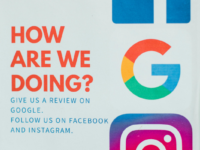It’s a familiar headline: A big tech brand (Google) is adding new AI features, this time to its shopping function.
But the new Shop with AI feature is already causing a lot of buzz among experts and businesses – and many think it’s part of a new age of automated shopping.
New innovations by OpenAI, Perplexity, and Google all essentially give shoppers their own personal assistant. Through conversation-style interactions, they learn – and store – a customer’s context, body shape, history, age, location and much more, and use this data to make hyper-individualised product decisions.
Not only that, but Google’s new shopping agents can purchase items for a customer. If a shopper wants to buy an item while it’s on sale, gone are the days when they would have to check in periodically – Google agents can now notify them when a discount is available. It can also repurchase products and services that a customer buys frequently, like toilet paper or lash appointments.
Retail expert Kelly Slessor thinks the adoption of these technologies by big players like Google signals the beginning of a new era.
“Agentic automation is going to disrupt everything in the next 24 months,” she told ISB. “This ability to automate processes, to remove the pain we go through whenever we’re looking for something, is going to change not only [the retail] industry, but every industry.”
How does agentic AI – like Google’s Shop with AI – affect buyer behaviour?
People are already outsourcing their research and decision making to AI – so it stands to reason that the same will happen with their purchases.
Marketer Matthew Forzan is already seeing a paradigm shift in the way customers are searching; they want to have a natural conversation with a search tool, not input keywords by themselves.
“Now, customers are saying ‘I have a budget of x, I like x brand, what do you have for me?” he told ISB.
And AI isn’t just acting like a personal shopper; it’s also doing the research for your customers. Both Forzan and Slessor think this could push customers towards price-based purchasing decisions.
“If you ask your AI agent to buy you headphones and you don’t care where they’re from then a lot of the time price, delivery and bundles will inform it – I definitely think there’s risk there,” said Forzan. “We know there’s cohorts of people who definitely want to support small businesses, but if you’re looking at a user who’s never purchased before, that could be more the case.”
Slessor is concerned that AI Agents could make shopping a price game, removing emotional connection or brand loyalty from the equation.
“I can be on Instagram, see a pair of Converse, stick in to my [AI] agent and say, ‘When you find those same Converse on sale at this price, let me know, and I’ll buy them,’” she explained. “There’s no emotional connection, no urgency – I’m just literally waiting on price.”
Slessor added that negative reviews – and returns – could also be more common if customers can outsource these to AI. Customers who might previously not have been bothered to return an item, request a refund, or leave a negative review might now be more empowered to do so.
Will Google’s Shop with AI hurt or help small businesses?
It depends on who you ask – and on the business involved.
If customers aren’t shopping around themselves – that is, browsing online websites or search results – it could certainly stop them from discovering alternative options. Let’s say you sell a common item like toilet paper: Plenty of toilet paper brands offer comfort or sustainability, but unless you occupy a unique corner of the market (Forzan points to the purpose-led Who Gives a Crap as an example) agentic AI could reduce your product to a price point.
Slessor and Forzan both think that businesses with unique products – or unique angles – might have a better chance of discovery under these conditions.
On the other hand, because this is an emerging technology, there is a chance for small-business owners to jump on AI optimisation now before its widespread adoption.
“There is, I think, a lower barrier to entry now,” said Forzan. “Because there is more opportunity to show up for these terms. It’s so conversational, so there’s an opportunity for small businesses to create content that competitors potentially don’t have…”
Small-business owner Gabi Saper is already taking action to optimise for AI. We previously spoke to Saper in an article about AI shopping overviews, where she mentioned setting up her website to target conversational queries. Now, she’s doubling down on her efforts to become an online leader in her product niche.
“We’re creating solid content, answering questions, and becoming that reliable source,” she told ISB. “…Whenever we make a video on a topic, we also make a blog on that same topic, and then we make an email, and then we put it on Facebook and YouTube.”
What can you do next?
Make sure your SEO is up to scratch: Good SEO will work on AI search tools as well as traditional search tools.
Use conversational language: AI tools are trying to interact in a humanlike way, said Slessor, and will prioritise content written in a conversational style.
Answer questions pre-emptively: For instance, use headings on your website pages that work as answers to common questions. Follow these up with a short, simple clarifying paragraph below. Then, don’t just answer the most common questions, but think about what someone would ask next. This pairing of pre-emptive questioning, clarifying paragraphs and supplementary questions is netting great results for Forzan’s small-business clients.
Don’t just rely on search as a funnel in: Diversify across platforms – the more you’re across, the more trust signals the agent can pick up on.
Get to know your customer avatars: AI agents will know everything about your customers, so you should too. Saper said that every quarter, she uploads customer reviews to build and adjust her three customer avatars. Every marketing move then speaks to at least one of these avatars.
Don’t be afraid to experiment: Saper thinks that agentic AI will be like all the big tech shifts that came before it – kind to experimenters and first-adopters, less so to those who drag their feet.
“People have to be really open to leaning in, giving it a go, and not being afraid,” she said. “The most exciting thing is that we’re all learning at the exact same pace, this is new to all of us – and the ones that are going to succeed are the ones that aren’t afraid to step in and learn.”















